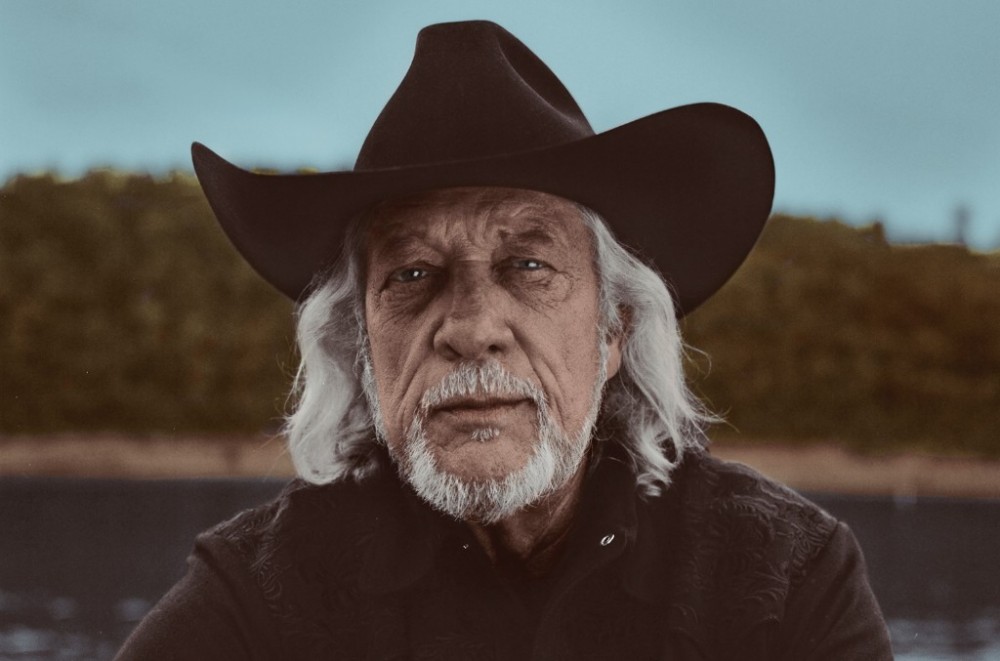"It’s like the man had things he wanted to say and we were just lucky enough to be there," The Black Keys' Dan Auerbach, who co-produced & co-wrote the project, tells Billboard.
The most powerful albums are often those that start as a personal statement and evolve into universal truth. Such is the case with John Anderson’s poignant new album Years, written and recorded while the veteran hitmaker was in the midst of a health crisis that decimated his hearing and threatened his life.
Produced by The Black Keys’ Dan Auerbach and David “Fergie” Ferguson, the collection comes out Friday Easy Eye Sound/Broken Bow/BMG. “We were able to write some really good songs, and Dan and Fergie make some really great records,” Anderson says. “I was thrilled to be able to go into the studio with both of them.” Anderson’s album is the 16th release on Auerbach’s Easy Eye Sound, following such acclaimed sets from Yola, Marcus King and others. It’s his first studio set since 2015’s Goldmine.
“I’ve been a John Anderson fan for years, but when I moved to Nashville, he was more of a presence in my life than he had been when I was in Ohio,” says Auerbach, a principal in The Black Keys. “I was just hanging out one afternoon with my friend Fergie and we were talking about how much we loved him. We looked up that video of him singing ‘1959’ and it just blew our minds. A week later, I was on the phone with him asking what he was up to.”
Jeremy Tepper, program director for SiriusXM’s Outlaw Country & Willie’s Roadhouse channels, gave Anderson’s number to Auerbach. Shortly after, they met and began writing. “‘Years’ was the first song out of the bull pen. I thought that was a pretty good start,” Anderson says. “When I first write songs], even when I’m co-writing, the first few days, I have to let them sink in and think about them before I pass much judgment, but ‘Years’ was one that the more I played it at home, the better it got.”
Anderson, 65, and Auerbach co-wrote all 10 songs on the album with various collaborators, including Ferguson, Paul Overstreet, Pat McLaughlin, Dee White, Joe Allen, Bobby Wood and Larry Cordle.
“It’s like the man had things he wanted to say and we were just lucky enough to be there,” says Auerbach. “I really feel like we were all kind of blessed in a way. This record is more than just a record. It’s like a testimony and knowing now what John went through — I didn’t at first — it just blows me away even more.”
Anderson had been battling an illness for over a year by the time work commenced on the album. “Through all of 2017 and all the way up until May of 2018, I had spent most of my time in the hospital and had been very, very ill,” he says. “I had almost 100% hearing loss. I did OK being sick, but when I lost my hearing and couldn’t play and sing, that really almost put an end to me. I just started praying and praying harder than I’ve ever prayed in my life and you know what? My hearing started coming back.”
Anderson says at one point, doctors thought he had brain cancer, but thankfully the tumor causing his hearing loss wasn’t malignant. Though it wasn’t cancer, getting healthy again was a long hard road. During one procedure, he says he almost died on the operating room table. Scheduled for another surgery, and knowing he might not make it, he pushed himself to get the album done. “I remember telling Dan and Fergie it might be my very last one, because at that point, I was still on very shaky ground health-wise,” he admits. “But I was loving it and wanting to do the music so bad that it was a driving force and ended up being very much a healing process for me.”
Anderson also credits his family with helping him heal. He says his wife Jamie, whom he married in 1983, never gave up hope that he would get better. “As long as a person has faith, there’s always hope, but if you lose your faith, there is no hope.”
The poignant Josh Bishop-directed video for the title track features Anderson’s wife and pictures of his family and friends. “We made several videos together back in the day, ‘Money in the Bank’ and ‘When It Comes to You,’ and this is the first one we’ve done together in almost 30 years,” he says of Jamie. “It’s so nice to have that now. There’s even a couple pictures of me and George Jones, Merle Haggard] and Johnny Cash, my old friends.”
A native of Apopka, Fla., Anderson moved to Nashville in 1971. A few years later he landed a contract with Warner Bros. Records and started cranking out such memorable hits as “I’m Just an Old Chunk of Coal (But I’m Gonna Be a Diamond Someday),” “Wild and Blue,” “I Just Came Home to Count the Memories,” “1959,” “Black Sheep” and, of course, his signature hit “Swingin’.” His career cooled off but saw a resurgence when he signed with BNA in 1991 and scored a comeback hit with the Country Airplay chart-topping “Straight Tequila Night” from his acclaimed Seminole Wind album. In 1993, Anderson was awarded the Academy of Country Music Career Achievement award.
Years is putting Anderson firmly in the spotlight again. In addition to the video for the title track, the label has also released a video (below) for “Tuesday I’ll Be Gone,” a duet with Anderson’s pal Blake Shelton. (Anderson had been out on Shelton’s Friends & Heroes Tour for the second year in a row before the coronavirus pandemic put a halt to the trek.)
“I’m probably one of the most thankful people for the music and the life that I have been able to lead, just traveling around this country playing music,” Anderson says. “I’m very proud of where I am, but I’m not through working. I found out I can’t go long without playing and singing to the crowds and writing new songs. That’s what I’ve gotta do, and as long as I’m able, that’s what I’m going to keep doing.”
Years is an intensely personal album for Anderson. When pressed to name the song that best typifies this season, he cites “Celebrate.” “It is pretty much my personal experience and how I was feeling being able to come out of being so sick for so long,” he says. “I made a promise to myself: Every day I live, I’m going to look up and say thanks, because I know who gives it to me each and every day. We shouldn’t let one go by without really celebrating the fact that we are here on this earth and living.”



